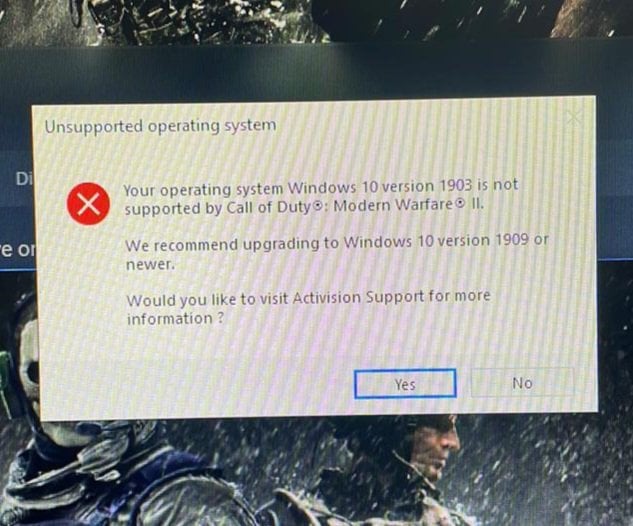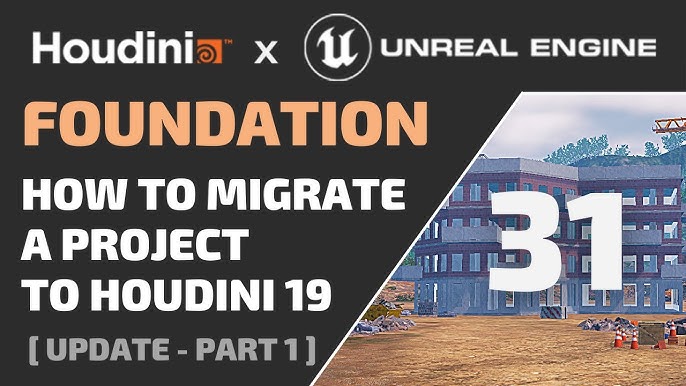Unity's Pricing Backlash and Steam's OS Cut-Off: A PC Gamer's Survival Guide The landscape of PC gaming is constantly shifting.

The landscape of PC gaming is constantly shifting. Just when you thought you had your rig perfectly optimized and your library brimming with digital delights, two major developments hit the scene: Unity's revised pricing policy and Steam's discontinuation of support for older Windows operating systems. For PC gamers, this translates to potential disruption, uncertainty, and the dreaded question: "Will my favorite games still work?" Fear not, fellow enthusiasts! As a seasoned PC gaming veteran and industry observer, I'm here to break down these changes, analyze their impact, and provide you with a survival guide to navigate this evolving terrain.
Unity's Per-Install Inferno: A Developer Uprising
The initial announcement of Unity's revised pricing model sent shockwaves through the game development community. The core of the controversy revolved around a proposed "Runtime Fee," a per-install charge levied on developers once their games surpassed certain revenue and installation thresholds. Imagine pouring your heart and soul into a passion project, only to face potentially crippling fees with each new download.
The backlash was swift and fierce. Developers, both indie and established, voiced their concerns on social media, forums, and even threatened to pull their games from the Unity ecosystem. Among the most vocal critics was Aggro Crab Games, the studio behind the satirical action RPG "Going Under." They publicly condemned the initial policy, stating it would disproportionately harm smaller developers and those participating in subscription services.
The sentiment was echoed across the internet. A poll on the Unity subreddit, for instance, revealed that a significant percentage of developers were actively considering migrating to alternative engines. While I can't provide the exact real-time percentage here without a live poll, discussions were rampant about the viability of alternatives.
Unity's Response and the Fallout
Faced with overwhelming opposition, Unity attempted to walk back some of the more egregious aspects of their initial proposal. They revised the policy, introducing measures like self-reporting of installations and focusing the fee on initial installs. However, the damage was done. The initial trust had been broken, and many developers remain skeptical.
"Trust takes years to build, seconds to break, and forever to repair," said an anonymous developer on the Unity forums, capturing the prevailing mood.
The Great Engine Migration: Feasibility and Costs
The possibility of migrating to another engine is a daunting prospect for many developers. Unreal Engine, Godot, and even custom-built solutions are being considered.
Unreal Engine: Offers cutting-edge rendering capabilities and is widely used in the AAA industry. Its licensing model is royalty-based (5% after the first $1 million in gross revenue), which can be more palatable for successful games but less appealing for projects with uncertain financial prospects. Migration costs can be substantial, requiring significant retraining and potential code rewrites.
Godot Engine: A free and open-source alternative that's gaining traction, particularly for 2D games. Its ease of use and lack of licensing fees make it attractive to indie developers. While its 3D capabilities are rapidly improving, it may not yet be suitable for all types of projects. The migration cost is lower than Unreal Engine, but developers still need to invest time in learning the engine and adapting their code.

The cost of migration varies wildly depending on the project's complexity. For a small indie game, it could range from a few weeks to several months of development time. Larger projects could take years and require significant financial investment. It's worth mentioning that creating a custom solution is also a choice, although this can be extremely expensive and time-consuming, and can easily be ruled out by most developers.
The Ripple Effect: Modding and Indie Development
Unity's pricing changes pose a significant threat to PC game modding, a cornerstone of the PC gaming community. Modders often rely on free or affordable tools to create and distribute their content. If developers are forced to abandon Unity or significantly alter their development practices, the modding community will inevitably suffer.
Forum threads on sites like Nexus Mods and ModDB are already filled with concerns about the future of modding for Unity-based games. Modders fear that developers will be less likely to provide modding tools or support, hindering the creation of new content. For example, games which rely on distribution of levels created through Unity will not be feasible in the future.
Indie developers who rely on older Unity versions due to budget constraints are also facing difficult choices. They may need to explore alternative engines, seek crowdfunding to upgrade their licenses, or re-evaluate their development plans altogether.
Steam's Farewell to Older Windows: A Necessary Evil?
Steam's decision to discontinue support for Windows 7, 8, and 8.1 also has implications for PC gamers. While the vast majority of users have upgraded to Windows 10 or 11, a significant number still rely on older operating systems.

This decision means that some games may no longer function correctly or at all on these older systems. While Valve provides some tools and documentation to help developers update their games, it's not always feasible, especially for older titles or abandoned projects.
Impact on Game Compatibility
Some PC game titles on Steam are known to have compatibility issues with Windows 10 and 11 or rely on older operating systems to function. This is often due to outdated drivers, reliance on legacy libraries, or simply a lack of developer support. In some cases, developers have ceased support for games entirely due to OS incompatibility. This means that gamers using Windows 7, 8, or 8.1 may find that some of their favorite titles are no longer playable. While I can't list every potentially affected game, checking community forums and compatibility databases can help determine if a specific title is at risk.
Charting the Course: Alternative Engines
The market is far from a monopoly. Here's a brief look at some prominent competitors.

Godot Engine: Boasting an MIT license, this open-source engine is extremely friendly to new users, and is very streamlined when it comes to 2D games. It's 3D functionality is constantly improving, and is constantly getting new features.
Unreal Engine: This engine is royalty based, but also boasts excellent rendering, an expansive asset library, and is ubiquitous throughout the games industry.
PC Gamer Action Plan: What You Can Do
So, what can you, the PC gamer, do to navigate these changes? Here's a step-by-step guide:
- Check Game Forums and Compatibility Databases: Before panicking, check the forums for your favorite games, as well as compatibility databases. These resources often contain information about known issues and potential workarounds.
- Contact Developers and Valve: If you encounter compatibility issues, report them to the developers and to Valve through Steam's support system. This helps them identify and address problems.
- Optimize Your Older PC: If you're still running an older PC, try optimizing it for newer operating systems. This includes using compatibility mode, updating drivers, and adjusting graphics settings.
- Explore Alternative Games: Discover new gaming experiences that are confirmed to be unaffected by these issues. Explore curated lists on Steam and recommendations from gaming websites.
Conclusion: Adapting to the New Reality
The recent changes in Unity's pricing policy and Steam's OS support are undoubtedly disruptive. While the future remains uncertain, one thing is clear: the PC gaming community is resilient and adaptable. By staying informed, taking proactive steps, and supporting developers who are committed to their players, we can navigate these challenges and continue to enjoy the games we love. Change is inevitable, but with a little preparation and community spirit, we can weather any storm. And remember, even if your favorite game becomes unplayable on your old system, there's always a new adventure waiting just around the corner.